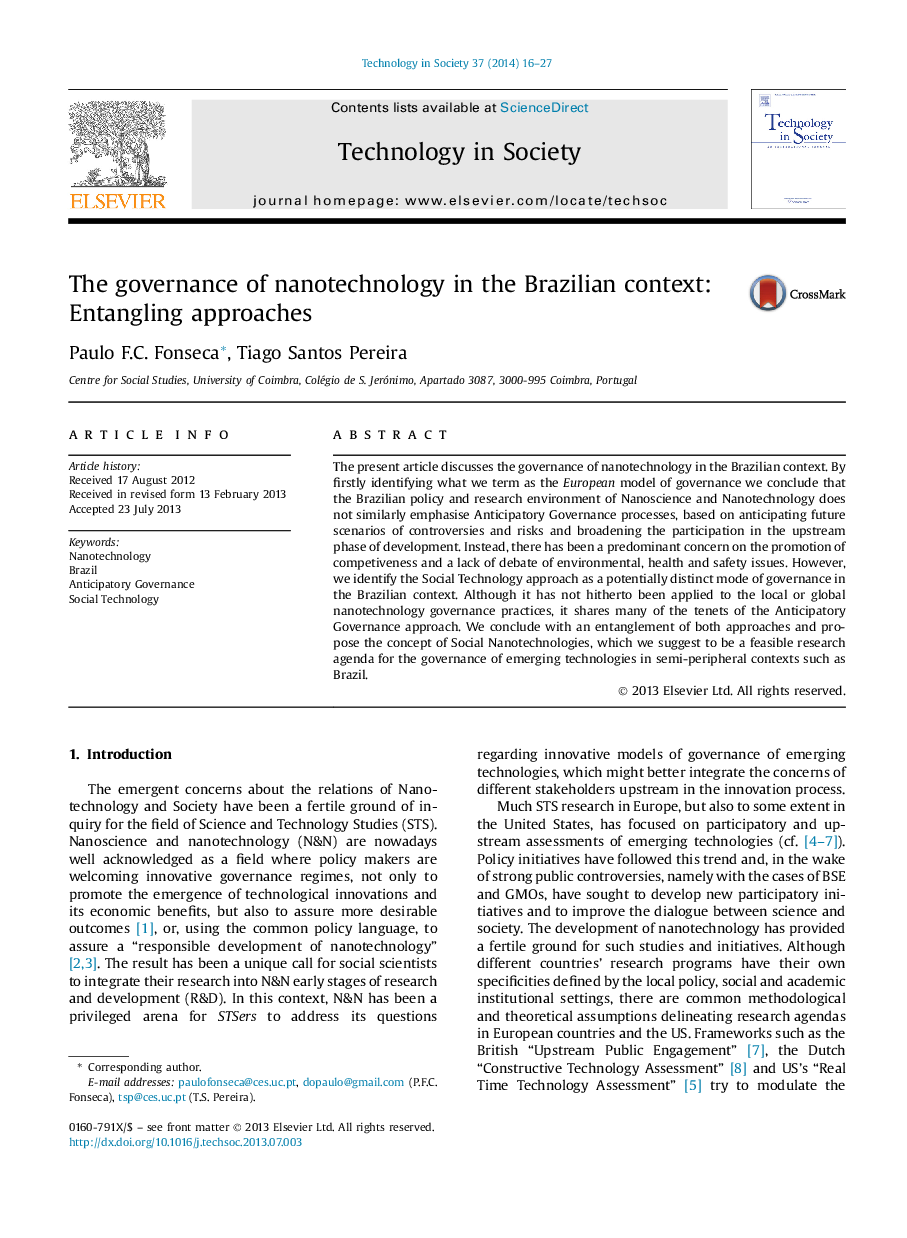| کد مقاله | کد نشریه | سال انتشار | مقاله انگلیسی | نسخه تمام متن |
|---|---|---|---|---|
| 375206 | 622675 | 2014 | 12 صفحه PDF | دانلود رایگان |
• Northern countries policies to N&N stress the importance of approaches of Anticipatory Governance.
• Brazilian N&N policies have not incorporated a similar Anticipatory Governance approach.
• Brazilian Social Technology approach can be considered as an alternative governance approach.
• We suggest that the entanglement of both approaches can contribute towards a more responsible governance of N&N.
The present article discusses the governance of nanotechnology in the Brazilian context. By firstly identifying what we term as the European model of governance we conclude that the Brazilian policy and research environment of Nanoscience and Nanotechnology does not similarly emphasise Anticipatory Governance processes, based on anticipating future scenarios of controversies and risks and broadening the participation in the upstream phase of development. Instead, there has been a predominant concern on the promotion of competiveness and a lack of debate of environmental, health and safety issues. However, we identify the Social Technology approach as a potentially distinct mode of governance in the Brazilian context. Although it has not hitherto been applied to the local or global nanotechnology governance practices, it shares many of the tenets of the Anticipatory Governance approach. We conclude with an entanglement of both approaches and propose the concept of Social Nanotechnologies, which we suggest to be a feasible research agenda for the governance of emerging technologies in semi-peripheral contexts such as Brazil.
Journal: Technology in Society - Volume 37, May 2014, Pages 16–27
